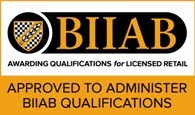To view the original article Click Here
Title – ‘Child alcohol guide’ for parents
Source – www.bbc.co.uk
Date – 31st December 2008
Whenever we ask a group attending one of our courses aimed at the Licensed Retail Sector ‘what is the legal age for a person to drink in England and Wales’, we generally get a cacophony of answers. Most say 18, those who completed their open-learning diligently and read their handbooks say 16 under certain conditions. The answer is as we can tell from this article altogether different; it is perfectly legal for a child aged 5 to drink alcohol.
This is just one of the common misconceptions of the Licensing Act 2003 and licensing of alcohol generally. The act does not cover the consumption of alcohol except where that takes place on licensed premises, but is concerned with the sale and supply of alcohol and there the answer to the original question is clear; alcohol can only be SOLD to people over the age of 18 and that is without exception.
Myths surround the sale and supply of alcohol, even many working within the sector fall foul to these half-truths and un-truths. Some have perpetuated over decades staunchly defended by publicans who have failed to keep up with changes in the law or customers who have no reason to know better and whose only qualification is that they have been going to the pub for 20 years. The fact is much has changed in 20 years and much more is set to change in the next few years.
During our courses such as the National Certificate for Personal Licence Holders (NCPLH) and the Award in Responsible Alcohol Retailing (ARAR) we dispel all these common myths and present candidates with the facts as they stand now, as well as the changes we expect to occur and how they can stay on top of new developments both in the law and in good practice. Responsible Alcohol Retailing is going to play a key role in the future of the licensed retail sector and the most profitable businesses and those that survive the various economic and statutory challenges, are going to be those that aim high at every level.
Beyond The Blue run a number of BIIAB approved training courses for the licensed retail sector as well as a Consultancy Service to help businesses meet their statutory requirements, prepare for the future and succeed.
Please visit our website at www.btbl.co.uk or join us on Facebook. For a complete list of Blog entries visit our National Press Archive page.




